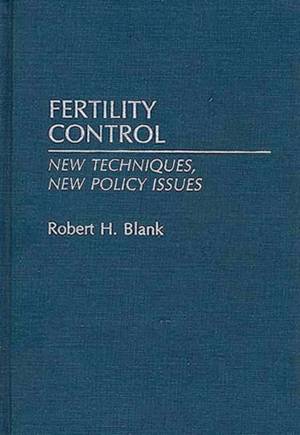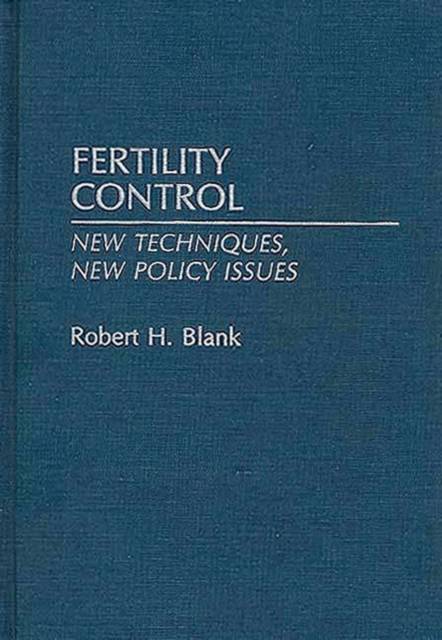
- Retrait gratuit dans votre magasin Club
- 7.000.000 titres dans notre catalogue
- Payer en toute sécurité
- Toujours un magasin près de chez vous
- Retrait gratuit dans votre magasin Club
- 7.000.0000 titres dans notre catalogue
- Payer en toute sécurité
- Toujours un magasin près de chez vous
Description
An exploration of the policy dilemmas with new fertility control techniques, this volume offers the first comprehensive treatment of the subject's technical, legal, and political dimensions. Robert H. Blank provides a detailed discussion of current state laws and court decisions, and extensive analysis of new fertility control techniques and their social and policy implications.
Blank describes the political, institutional, and constitutional context of fertility control in the United States, examining the relationship between social structures and rapid advances in biomedical technology. He details innovations in fertility control, particularly reversible methods, and reviews the legal context of both voluntary and non-consensual sterilization. Examining the myriad contemporary policy issues relating to fertility control, this book offers insights for devising a rational fertility control policy that will maximize benefits and minimize potential abuses. Written for the informed layperson, it is will also be valuable to professionals in health, policy analysis, bioethics, family planning, and public policy.Spécifications
Parties prenantes
- Auteur(s) :
- Editeur:
Contenu
- Nombre de pages :
- 176
- Langue:
- Anglais
- Collection :
- Tome:
- n° 32
Caractéristiques
- EAN:
- 9780313276408
- Date de parution :
- 18-11-91
- Format:
- Livre relié
- Format numérique:
- Genaaid
- Dimensions :
- 161 mm x 242 mm
- Poids :
- 458 g

Les avis
Nous publions uniquement les avis qui respectent les conditions requises. Consultez nos conditions pour les avis.






